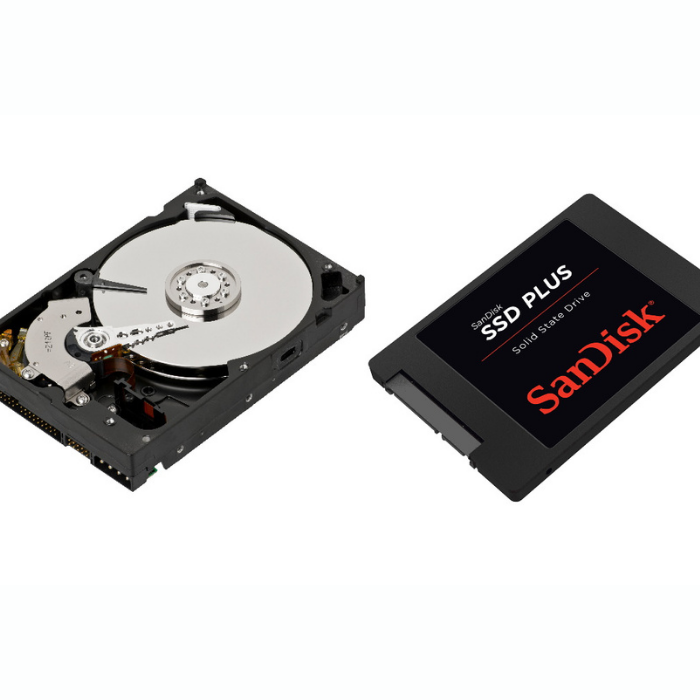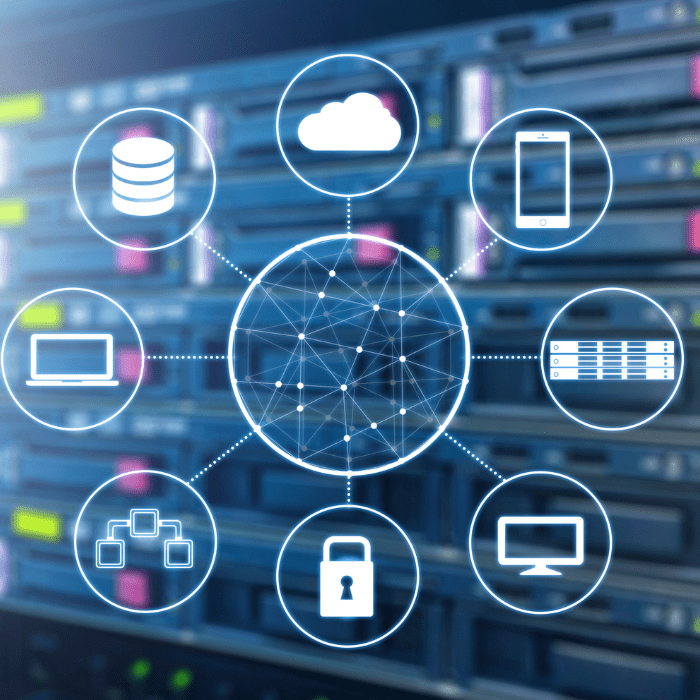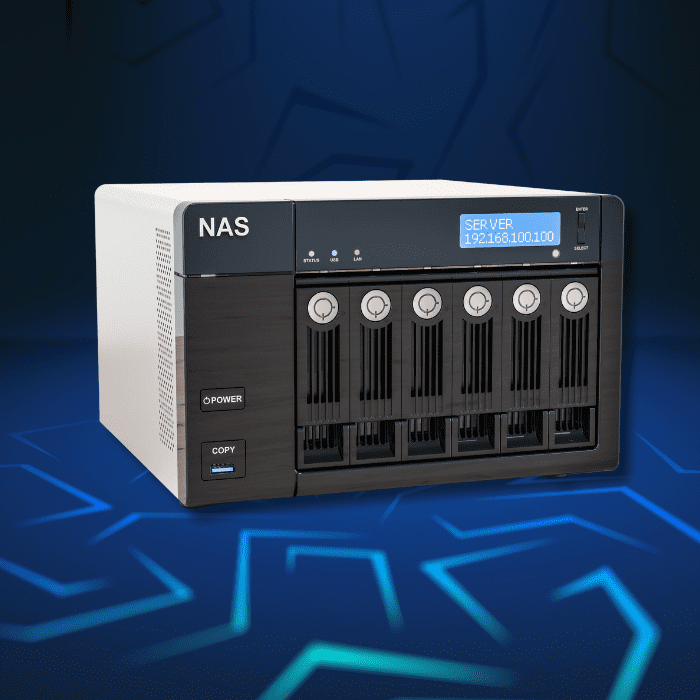Hard disks are the most common storage devices found in computers, laptops and other electronic devices. However, in recent years, solid state disks (SSDs) have been gaining more and more market share due to their advantages over traditional disks.
In this article, we will compare these two types of storage devices and highlight the main advantages of the SSD over the hard disk.
By the end of this article, you will have a clear understanding of when it is more appropriate to use an SSD instead of a hard disk, given your data storage needs.
What is an SSD?
Before you choose which technology is best, SSD or disk, you need to understand what each one is. Let’s start with SSD, which stands for “Solid State Drive”.
The name comes from the fact that this technology has no moving or mechanical parts, which guarantees greater durability and resistance to physical damage.
How does SSD memory work?
While hard disks store data on spinning magnetic disks, SSDs store data in solid-state memories. Understanding how this memory works is important to understanding why SSDs are so different from hard disks.
An SSD’s memory is made up of NAND memory cells, similar to the memory cells found in devices such as memory cards and USB flash drives. Each memory cell can store a single bit of information, and an SSD storage unit is made up of millions of these cells. When a memory cell is written with a bit of information, it is polarized. When the cell is read, the polarity indicates whether the bit is 1 or 0.
What is a disk?
The Hard Disk Drive (HDD), better known as a disk, or hard drive, is a piece made up of disks (or platters), which store data, and a movable arm, which reads and records this information. Hard disk technology has existed since 1956, when it was created by IBM, and is today the most popular form of storage in home computers.
What is the difference between disk and SSD?
You have already seen that the composition of a disk and an SSD is slightly different. But how does this work in practice and what is the advantage of SSD over disk?
Firstly, the structure of the SSD, which works with flash memory modules, ensures that data is read more quickly. In the case of a disk, the mechanical arm has to scan the magnetic disk to read and save the files, which ends up making the task more time-consuming.
In addition, the constitution of the hard disk can make it more fragile to impacts and falls, but this is also the most affordable option for a large part of the population.
What are the advantages and disadvantages of an SSD compared to a hard disk?
Both types of device have their own advantages and disadvantages, and it is important to understand these differences before deciding which type of storage to use. In this topic we will compare these two types of storage devices and highlight the main advantages and disadvantages of each one.
Which has a longer lifespan, SSD or disk?
One of the key points when choosing whether to buy a computer or install a new part is the lifespan, isn’t it? At a time when we are so used to terms like “programmed obsolescence”, it is important to know how long each item will last.
Furthermore, when the first SSDs were launched, there were rumors that their durability was not good.
SSD
The truth is that the lifespan of an SSD may be shorter than that of a disk, but that doesn’t mean that it is short. According to a test carried out by the TechReport website, an SSD can handle around 700TB of data before it starts to fail. But the average use of a typical SSD is 20TB per year.
In other words, it will take many years for the device to become really compromised. So the chances are that your computer as a whole will fall apart well before the end of the SSD’s useful life.
Disk
The disk, on the other hand, may have a longer lifespan in general, but the truth is that its technology is older and its mechanical structure more fragile. Drops, impacts and temperature rises are problems that can damage the hard disk and affect the durability of the SSD much less, or not at all.
What is the difference in speed between disk and SSD?
Another key aspect in your choice is speed. This is the main advantage of an SSD over a disk, here’s why!
SSD
Opening files and programs is much faster on the SSD because access to the flash memory is instantaneous. With this type of technology, the speed of writing and reading data is 500 MB/s on average, and can exceed 7,000 MB/s in the most advanced models.
Disk
The disk, on the other hand, needs to access the files and programs with a mechanical arm that reads and records information on the disk. This process takes longer, so the average hard disk speed is between 150 and 200 MB/s.
Best cost-benefit ratio
The cost-benefit ratio of SSD or disk depends on the use you are going to make of the equipment.
SSD
SSD capacity is generally lower, but this technology also offers much more speed and overall durability, as you can see here. Prices tend to be higher, but the investment is worth it, especially if you want to use heavy programs or play games.
Disk
The disk, on the other hand, can be found in cheaper versions, so they are more popular. At the same time, your computer is likely to be slower and more likely to crash when performing everyday tasks.
Which is safer, disk or SSD?
Another important point when choosing any component for your computer is security. After all, nobody wants to be left in the dark when they need their files the most.
SSD
In this sense, the SSD can be a safer option, because you have less chance of losing your files due to physical damage. Drops and strong impacts can damage your hard disk, due to its mechanical components, and require data recovery. In addition, the SSD warms up less and resists high temperatures better, which avoids problems.
Disk
The disk, on the other hand, can be corrupted by physical problems such as falls and other shocks. It is also susceptible to magnetic interference, which can also affect your data.
Size and weight
In general, the size and weight of components makes a big difference. We explain more about the size and weight of SSDs and Disks below.
SSD
Because it uses electronic chips, the SSD is much smaller and lighter. Compared to a conventional desktop disk, some SSD models are up to 20 times more compact.
Disk
The disk in a laptop, on the other hand, is around 2.5 inches and may be similar in size to an SSD, but it is still heavier, which gets in the way of those who need to transport their computer on a day-to-day basis.
Energy Saving
Energy efficiency is also a concern for many users and various components of your computer have an impact on this, especially battery life (in the case of laptops).
SSD
Energy savings are another advantage of the SSD over a disk. After all, energy consumption is generally five times lower than that of a conventional disk. In addition, the time you can save on some tasks because of the speed you gain with this technology can help. Especially for those who use their computer for professional tasks.
Disk
Disks, on the other hand, are an older technology, as we have seen here, and they use more energy. In other words, the electricity bill is likely to be higher for computers with this type of part.
Is it useful to put an SSD in an old laptop?
Now that you have seen the advantage of SSD over disk, you may be asking yourself “ok, but I cannot afford to buy a new computer right now, can I install an SSD in my old laptop?”. This is a very common question and the practice is becoming more and more common.
This choice can give extra life to equipment that is slow and crashing. Of course, you need to check that there are no other components with problems, but if the issue is simply one of speed and performance, an SSD can help!
Mainly because you can opt for hybrid storage, keeping some files that you use less on the disk and putting heavier programs that require more speed, such as games, on the SSD.
But in order to do this, you need to check that your computer has a slot for both options. So it’s always best to consult a professional. Here on our blog, for example, we’ve already explained the process of removing the disk or SSD from the computer. Check it out!
There is also the option of installing an SSD and using the old disk as an external drive. Just buy a case, available in many electronics stores, and connect it via USB to your computer.
Conclusion
The biggest advantage of an SSD over a disk is its speed, and nowadays the cost-benefit ratio is getting better and better. That’s why many users are opting for this option. Not just because of its efficiency, but also because of the security it offers.
Even so, if you have any problems with your SSD, you can count on Bot. We work with data recovery from corrupted or problematic SSDs. Get in touch and ask us any questions you may have!



